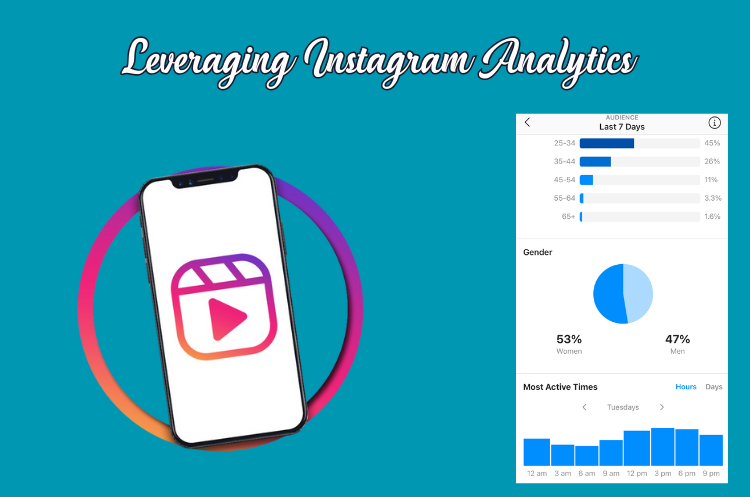
How to Safeguard Your Brand’s Reputation
In the dynamic landscape of the modern business world, where information flows ceaselessly and public opinion can shift in the blink of an eye, the integrity of your brand’s reputation stands as an invaluable asset. It’s more than just a logo or a catchy slogan; it’s the collective perception people hold about your company. The way your brand is perceived can have a profound impact on your success or failure in the market.
In this blog, we’ll embark on a comprehensive exploration of the fundamental strategies that are essential for not only protecting but also enhancing your brand’s reputation. We’ll dissect these strategies to understand why they are crucial, how to implement them effectively, and what specific actions you can take to safeguard your brand’s reputation.
- Building Trust: The Cornerstone of Reputation Management
Trust is the bedrock upon which the edifice of your brand’s reputation is constructed. It is the assurance that your brand delivers on its promises and that customers can rely on your products or services. But trust isn’t something that’s simply bestowed upon your brand; it must be diligently cultivated.
Why Trust Matters: Trust matters because it forms the basis of long-term customer relationships. When consumers trust your brand, they are more likely to become loyal customers, repeat purchasers, and brand advocates.
How to Build Trust: Building trust involves two essential elements – authenticity and transparency. Authenticity means staying true to your brand’s values and promises. Transparency means being open and honest in your communications with customers. When your brand behaves authentically and transparently, it fosters trust.
Actions to Take: To build trust, show the human side of your brand. Engage with customers genuinely and professionally, even when faced with negative feedback. Address concerns honestly and promptly. Building trust is a long-term endeavor, but it can be shattered in an instant, so handle it with care.
- Leveraging Social Media: The Digital Face of Your Brand

In today’s digital age, social media platforms serve as the frontlines where many people encounter your brand for the first time. These platforms are not just tools for promotion; they are spaces for meaningful engagement.
Why Social Media Matters: Social media is where your brand’s personality shines through. It’s where you can connect with your audience on a personal level, showing them that your brand is more than a faceless entity, but a community of like-minded individuals.
How to Leverage Social Media: Use social media as a powerful tool to engage with your brand’s audience. Share valuable industry-related information, tell your brand’s story, and actively respond to comments and feedback. Create a two-way conversation around your brand and provide behind-the-scenes glimpses to strengthen your online reputation.
Actions to Take: Be responsive, listen to your audience, and understand their needs. Engaging with your audience on social media humanizes your brand and helps build meaningful connections.
- Accentuating the Positive: Mitigating Negative Content
In the vast expanse of the internet, negative content about your brand may occasionally rear its head. However, you need not be passive in the face of such challenges. Proactive measures can help mitigate the impact of negative content.
Why Accentuating the Positive is Essential: Negative content can harm your brand’s reputation and influence potential customers. By accentuating the positive, you can counterbalance this effect and maintain a more favorable perception.
How to Accentuate the Positive: Proactively create and promote positive content about your brand. Initiatives such as starting a blog, creating new websites, and optimizing positive content for search engines can help push negative content down the search results, making it less visible to potential customers.
Actions to Take: Keep a watchful eye on your online presence. When negative content surfaces, respond professionally and constructively. By showcasing your brand’s strengths and values, you can dilute the impact of negativity.
- Engaging with Reviews: Nurturing Customer Feedback
Online reviews have become a central part of the modern consumer’s decision-making process. They provide insights into your brand’s performance and quality. Thus, engaging with reviews, both positive and negative, is vital for reputation management.
Why Reviews Matter: Reviews influence consumer behavior. Positive reviews can boost your brand’s credibility, while negative reviews can erode trust. Engaging with reviews demonstrates your commitment to customer satisfaction.
How to Engage with Reviews: Encourage customers to leave reviews and promptly respond to them. Express gratitude for positive reviews, and address concerns in a professional manner. This shows that you value feedback and are willing to make amends when necessary.
Actions to Take: Regularly monitor review platforms, engage with reviewers, and actively seek to improve your products or services based on their feedback. This not only enhances your reputation but also contributes to better customer experiences.
- Taking Care of Your Team: The Internal Reputation Factor
Your employees are often the face of your brand, both internally and externally. Their experiences and opinions can impact your brand’s reputation significantly.
Why Employee Satisfaction Matters: Satisfied employees are more likely to speak positively about their workplace, which can enhance your brand’s online reputation. Conversely, dissatisfied employees can lead to negative reviews on platforms like Glassdoor.
How to Take Care of Your Team: Treat your employees as valuable team members. Listen to their concerns, maintain open communication, and strive to create a positive working environment. When your team is happy, they are more likely to reflect that positivity in their interactions with customers and in their reviews of your company.
Actions to Take: Conduct regular employee satisfaction surveys, address workplace issues promptly, and invest in employee development and well-being. Happy employees contribute to a positive brand image.
- Monitoring Your Brand Online: Staying Vigilant in the Digital Realm
The internet is a vast, constantly evolving space where discussions about your brand occur whether you’re actively participating or not. Staying vigilant about what’s being said is crucial for reputation management.
Why Online Monitoring is Essential: What’s said online can directly impact how your brand is perceived. Positive mentions can bolster your reputation, while negative ones can tarnish it. Being aware of online conversations allows you to respond effectively.
How to Monitor Your Brand Online: Implement tools like Google Alerts, regularly check search engine results, and monitor social media comments and mentions. Keep a watchful eye on review websites to gauge your brand’s online perception.
Actions to Take: Set up alerts for brand-related keywords and phrases. Actively participate in discussions related to your brand to correct misinformation and engage with your audience. Timely responses can help shape the narrative in your favor.
- Getting Good Press: Leveraging Positive Media Coverage
Positive media coverage can be a powerful tool in enhancing your brand’s image and credibility. Building relationships with journalists, bloggers, and publicists can help you garner favorable attention.
Why Good Press Matters: Positive media coverage can reach a broader audience and lend your brand an air of credibility and authority. It serves as third-party validation of your brand’s value.
How to Get Good Press: Foster relationships with media professionals who cover your industry. Write and distribute press releases about your company’s achievements, innovations, and positive contributions to the community. Utilize social media to share news about your brand.
Actions to Take: Regularly reach out to media outlets with relevant stories, contribute guest articles to reputable publications, and ensure that your brand’s achievements are well-documented and shared through various channels.
- Protecting Your Privacy: Safeguarding Your Online Presence
In an era of increasing digital interconnectedness, protecting your personal and professional life’s separation is paramount for brand reputation management.
Why Privacy Matters: Your online actions can have a direct impact on your brand’s reputation. Personal missteps or lapses in judgment can reflect poorly on your brand. Privacy breaches can also lead to negative consequences.
How to Protect Your Privacy: Take proactive steps to safeguard your online privacy. Update social media privacy settings to control who can access your personal information. Be cautious about sharing sensitive personal details online, and educate yourself and your team about cybersecurity best practices.
Actions to Take: Regularly review your online profiles and the information you share. Be wary of phishing attempts and spam messages. Implement strong password practices, and consider employing cybersecurity measures to protect your online presence.
In Conclusion: Safeguarding Your Brand’s Reputation
In the dynamic world of business, where a brand’s reputation can make or break its success, proactive reputation management is not a luxury but a necessity. These strategies, rooted in trust, engagement, and vigilance, are the cornerstones of safeguarding your brand’s reputation. Remember, it’s easier to prevent a crisis than to clean up after one.
If you find the task of reputation management daunting or require professional assistance, consider reaching out to experts like Build Brand Better. We specialize in enhancing online reputations and can provide invaluable guidance tailored to your brand’s needs. Don’t hesitate to contact us for a free consultation. Your brand’s reputation is an invaluable asset deserving of protection and enhancement.
FAQ
Q1: Why is reputation management essential for my brand?
A1: Reputation management is crucial because it directly impacts how your brand is perceived by the public. A positive reputation builds trust with customers, fosters loyalty, and can even lead to increased sales. Conversely, a tarnished reputation can result in loss of trust, decreased customer loyalty, and financial setbacks.
Q2: How can I build trust with my audience?
A2: Building trust involves being authentic and transparent. Show the human side of your brand, communicate openly with your customers, and respond professionally to feedback. Consistently delivering on your promises also plays a significant role in establishing trust.
Q3: Why is social media engagement important for reputation management?
A3: Social media is where many people first encounter your brand. Engaging with your audience on social media humanizes your brand, fosters connections, and allows you to address concerns and showcase your brand’s personality.
Q4: How can I mitigate the impact of negative content online?
A4: To mitigate negative content, accentuate the positive. Create and promote positive content about your brand through blogging, new websites, and search engine optimization. This can push negative content down search results, making it less visible.
Q5: Why should I engage with online reviews?
A5: Online reviews influence consumer behavior. Engaging with reviews, both positive and negative, demonstrates your commitment to customer satisfaction. It can enhance your brand’s credibility and help you address concerns effectively.
For more Blogs :- www.buildbrandbetter.io/blog/
